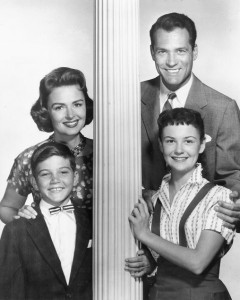In 1943, the UK’s Catholic Herald reports, Léon Degrelle was excommunicated by the bishop of Namur for “brutalising” a parish priest at his hometown of Bouillon, in Belgium. “Brutalising,” in this case, meant “beating the tar out of.” Home on furlough from the Eastern Front, where he’d been serving as an officer in the Waffen SS’s Wallonian brigade, Degrelle wore his uniform to Mass in defiance of a 1940 episcopal ban. The presiding priest refused to serve him Communion, and Degrelle took Father’s refusal with all the grace of a drunk cut off at the bar.
A beating conferred by an SS officer in occupied Europe doesn’t sound very newsworthy, but Léon Degrelle was also the founder of Belgium’s Rexist party. Having covered Mexico’s Cristero war as a correspondent for the Belgian Catholic newspaper Cristus Rex, an inspired Degrelle named his party — originally committed to Catholic social teaching — after both his paper and the Cristeros’ war cry of Viva Cristo Rey! or Long live Christ the King!
But as the Bouillon incident demonstrates, Degrelle’s Catholicism dissolved in his growing man-crush on Adolf Hitler, whose suicide he later praised as an act of “iron self-control.” From the student at Louvain’s Université catholique who impressed classmate Otto von Hapsburg with his “brilliant, erratic” character, Degrelle degenerated into a fanatic and a crank.
The ironies of his career bear remembering today, on the solemnity of Christ the King. Pope Pius XI added it to the liturgical calendar in 1925, and his reasons shouldn’t sound like the premise for a sci-fi novel. In his encyclical Quas Primas, Pius writes of a “majority” of men who had “thrust Jesus Christ and his holy law out of their lives,” so that “these had no place either in private affairs or in politics.” Though Christ’s kingdom is not of this world, Pius stresses, Christ and his law retain authority in worldly affairs. Once rulers and ruled alike submit to His sweet yoke and light burden, they’ll begin to enjoy “great blessings of real liberty, well-ordered discipline, peace and harmony.”
It was as the first step in pursuit of this lofty goal that Pius proposed a new feast day. “The church’s teaching affects the mind primarily,” he observes, but “her feasts affect both mind and heart, and have a salutary effect upon the whole of man’s nature.” In other words, to bring about world peace and serve the common good, Pius didn’t found a party so much as throw a party.
Well, okay, not exactly. The Vatican never was shy about protecting or promoting the Church’s interests by engaging directly with the issues, or even the players. While the faithful accustomed themselves to celebrating Christ’s kingship, it condemned communism and proscribed l’Action Française, concluded the Lateran Treaty with the Kingdom of Italy and a concordat with the German Reich. When the Nazis breached the concordat, the Vatican condemned the breach, along with the fundamentals of Nazism itself. But in Quas Primas, Pius foreshadows none of this. Instead, he speaks warmly of the work done by missionaries, and his own joy at raising new saints to the altar.
Patheos is hosting a panel discussion on the subject “Faith Leaders and Political Engagement: Time to Pull Back?” That’s a big, broad, intimidating question. The takeaway from today’s solemnity shouldn’t be an absolute yes or no, but a perspective: bringing about Christ’s kingship is a worthy end, and direct engagement in politics is a legitimate means toward it. But it’s not the only means. If it fails, other means must be found, even at the risk of drastically adjusting the timetable. Getting too impatient like Degrelle could mean making a pact with the devil.
Msgr. Thomas Paprocki, bishop of Springfield, Illinois, demonstrated engagement outside the box when he offered prayers of supplication and exorcism in reparation for the state bill approving same-sex marriage. Granted, it’s a move that lends itself to misunderstanding. Systematic theology professor Robert Fastiggi has expressed fear that “some segments of the secular media will twist this out of context” and claim the bishop’s calling gay people “diabolical.” Well, I’m not a member of the secular media, and I had a hunch that wasn’t what Paprocki meant, but…I did have to check.
But nobody, on the other hand, could interpret these prayers as a cheap act of political theater. The game, for the moment, is over; this is post-game. Ignatius Press founder Fr. Joseph Fessio believes Paprocki’s prayers will “help [same-sex marriage supporters] see the objective disorder of these unions” — possibly, to his mind, “the most compassionate” way of doing it. In other words, the prayer service is a teachable moment, a way for the Church to carry on its mission even in defeat. Joseph Bottum called on Churchmen to dedicate their talents to “re-enchantment: Preach the word of God in the trees and rivers. The graves giving up their dead. The angels swirling around the Throne.” He might not have had this in mind, but by my scoring, it counts.
In any case, it’s a far, far cry from Degrelle-ism. Maybe I’m setting the bar too low, but I don’t think so. The Church’s loss of clout, and the direct constraints some Christians are feeling in the exercise of their conscience, has released a lot of anger and anxiety. It needs an outsized sop. True, Pope Francis made the pivot from attacking same-sex marriage as the devil’s work to kissing the Argentine president who signed it into law; but he’s one in (at last counting) a billion, and it took him three years.
I would hope other bishops find other ways of building the kingdom. But as long as bullets aren’t the alternative to ballots, I can hang on for the ride.
Anyway, I hope we can put it all out of our minds for the next few hours and be merry monarchists together.











